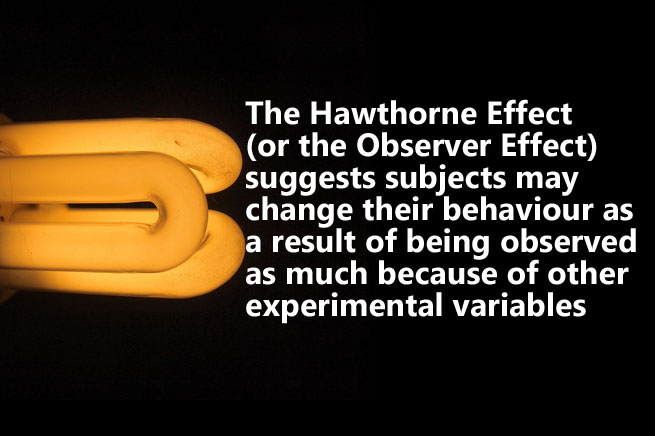The Hawthorne Effect: How Accountability Improves Your Study Habits
Last semester, Vikram, a first-year medical student, was slipping. His study sessions were erratic—some days he’d dive into pathology for hours, other days he’d scroll through his phone, distracted by social media. He knew he needed to get serious, but motivation felt elusive. Then, a classmate invited him to a study group where they shared daily goals and checked in weekly. Suddenly, Vikram found himself studying consistently, not because he’d magically become disciplined, but because he knew his peers were watching. This is the Hawthorne Effect in action—when being observed boosts your performance. For medical students juggling endless demands, accountability can be a game-changer for building better study habits. Let’s explore how the Hawthorne Effect works and how you can use it to transform your learning.
What Is the Hawthorne Effect?
Named after studies conducted in the 1920s at the Hawthorne Works factory, the Hawthorne Effect describes how people improve their behavior when they know they’re being observed. In the original experiments, workers became more productive under scrutiny, regardless of other changes. For medical students, this means that accountability—whether from peers, mentors, or even self-monitoring—can drive better study habits by creating a sense of being “watched.”
Why does this matter? Medical school is intense, with constant pressure to master complex topics like biochemistry or clinical skills while managing rotations and personal life. A 2022 study in Medical Education Online found that students with accountability systems, like study partners, reported 25% higher productivity and lower procrastination rates. By harnessing the Hawthorne Effect, you can stay focused, consistent, and motivated. Here’s how to make it work for you.
5 Accountability Strategies to Supercharge Your Study Habits
These strategies use the Hawthorne Effect to create accountability, tailored for the medical school grind:
- Join or Start a Study Accountability Group: Form a small group (3–5 peers) to share daily study goals and check in weekly. For example, commit to reviewing 20 pharmacology flashcards and report back. The group’s “observation” keeps you on track. A 2021 study in Journal of Medical Education showed that peer accountability boosts consistency by 30%.
- Use a Public Commitment Tool: Share your study goals publicly, like posting “I’ll study renal physiology for 2 hours today” on a group chat or a platform like r/medicalschool. Public commitments leverage social pressure to enhance follow-through, per a 2020 study in Behavioral Science.
- Track Progress Visibly: Use a habit tracker (e.g., a spreadsheet or app like Habitica) to log study hours or tasks completed, and share it with a mentor or friend weekly. Visible tracking creates self-accountability, as shown in a 2019 study in Journal of Applied Psychology, which linked tracking to improved goal attainment.
- Partner with a Study Buddy for Check-Ins: Pair up with a classmate for daily or weekly check-ins, where you each report what you studied and discuss challenges. For instance, text each other after studying neurology to confirm completion. A 2022 study in Academic Medicine found that study buddy systems reduce procrastination and enhance focus.
- Create a Weekly Reflection Ritual: Every Sunday, write a 5-minute reflection on your study progress, noting what worked and what didn’t. Share it with a trusted peer or keep it in a shared doc. This self-observation mimics the Hawthorne Effect, boosting accountability, per a 2020 study in Learning and Individual Differences.
Vikram’s Accountability-Driven Study Week
Here’s how Vikram uses these strategies to transform his study habits:
- Monday: Joins a study group, committing to study microbiology for 2 hours and reporting back.
- Tuesday: Posts his goal—“Review 30 antibiotic flashcards”—in the group chat, using public commitment.
- Wednesday: Tracks his study hours in Habitica, sharing the log with his group for feedback.
- Thursday: Texts his study buddy after finishing a neurology review, discussing key concepts.
- Sunday: Writes a reflection on his week, noting that group check-ins kept him motivated, and shares it with his study buddy.
Vikram’s week feels structured and productive, with accountability keeping him focused and engaged.
A 4-Week Accountability Group Challenge
Ready to harness the Hawthorne Effect? Try this 4-week challenge to build accountability into your study habits:
- Week 1: Form Your Group: Recruit 2–4 peers (in-person or via some community). Set a group goal, like studying 10 hours weekly, and agree to daily check-ins via text or chat.
- Week 2: Go Public: Share one daily study goal publicly (e.g., group chat, social media). Track progress in a shared habit tracker, like a Google Sheet, and discuss results at week’s end.
- Week 3: Pair Up: Partner with one group member as a study buddy. Check in daily after studying, sharing one key takeaway (e.g., a concept you mastered). Log your progress visibly.
- Week 4: Reflect and Scale: Write a weekly reflection on how accountability helped. Discuss with your group and plan to continue or expand (e.g., add a mentor). Share your success in our Telegram group!
This challenge leverages social accountability to keep you consistent, even during busy rotations.
Debunking Accountability Myths
Let’s address three common misconceptions:
- Myth: Accountability feels like pressure. Reality: It’s motivating, not stressful, when done collaboratively. Choose supportive peers, per a 2021 study in Medical Teacher.
- Myth: I work better alone. Reality: Even solo tracking (e.g., habit apps) triggers the Hawthorne Effect, boosting performance, as shown in a 2019 study in Behavioral Science.
- Myth: It’s too time-consuming. Reality: Quick check-ins (2–3 minutes) or reflections fit any schedule and save time by reducing procrastination.
Study Smarter with Accountability
The Hawthorne Effect shows that a little observation goes a long way. By building accountability into your study habits, you’ll stay consistent, motivated, and connected, turning medical school’s challenges into opportunities. Start with a single check-in today and watch your productivity soar.


Comments
Post a Comment